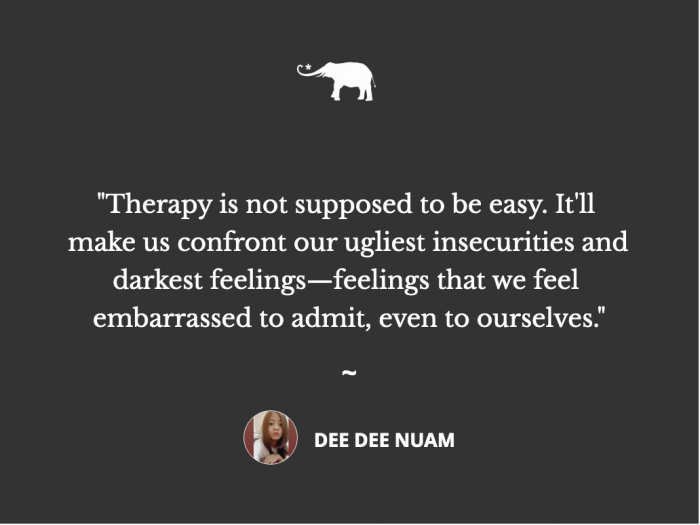At its best, this article will resonate and inspire some to get help should they need it. At its worst, this article will act as a reminder of how far I’ve gone.
I lost my father in 2021. It was an unimaginable grief that I had never dealt with before, but grief isn’t the only feeling I’ve been dealing with in the past year.
As they say, trouble brings friends. A lot of unexpected personal and relationship problems followed on top of that. We like to encourage people dealing with grief and loss to speak out, but in reality, it’s difficult to articulate our emotions when we feel that overwhelmed.
Proper communication is an art, and one which I lacked during that taxing time. I’ve always known I needed help, but 2021 has pushed me to the edge. I realized I needed to talk to an expert.
To give some context, I was not suicidal. I was highly functional—at least on the surface. I was productive at work. I didn’t find it hard to laugh and smile with friends. I hung out with my family and relatives on special occasions. I did all the things that a normal person would do.
Deep down, though, I didn’t mind if I suddenly disappeared off the face of the earth. I didn’t attempt anything related to self-harm, but at the same time, I didn’t mind if death came at me one night and took my life.
In other words, I’d given up.
Given up in the way that I didn’t feel anything positive about what I did anymore, and I didn’t even try to feel good about myself.
“People are leaving me one by one, whether it’s through death or betrayal. Maybe I’m just someone whom people just like to leave. Maybe I’m not lovable enough to be chosen.”
As a New Year’s resolution for 2022, I made myself a promise to invest more in my mental health, and so I had my first therapy session. I didn’t realize how much baggage I’ve been carrying until I talked with an expert.
My obsessive need to be self-aware knew that I was carrying some baggage. That much I knew, but I didn’t realize how heavy it was, and how it had been affecting my self-worth and relationships. I tried to think about what happened to me, and whether I had been in denial about my feelings or I genuinely thought I was fine.
What actually happened was that I normalized negative self-talks to the point where I identified with them.
While negative feelings about ourselves are normal, it’s also important to know that these feelings are not the whole truth, and we don’t have to define ourselves based on them.
Feelings are not facts.
Human beings are too complex to be defined with such a narrow scope. It is tricky because such negative talks don’t make themselves known at first. They take root inside our hearts, quietly, until they grow inside our heads. It’s important to be aware of them before they spread.
Therapy has helped me to become aware of where these feelings come from. It is entirely different from opening up to a best friend. A friend may be able to empathize with us but not be able to give us concrete action steps for improvement.
Therapy is for people who want to improve themselves—who refuse to be content with just “talking about it” or “praying for it.”
Therapy is also not supposed to be easy. It’ll make us confront our ugliest insecurities and darkest feelings—feelings that we feel embarrassed to admit, even to ourselves.
Because of this, people are generally afraid of their first therapy session, thinking that they will have to deal with lots of hard questions on their first encounter. But good therapists won’t force us to do it immediately. They will wait until we are ready to talk about it.
A moment of courage is all we need.
~










Read 0 comments and reply